Writing Academic
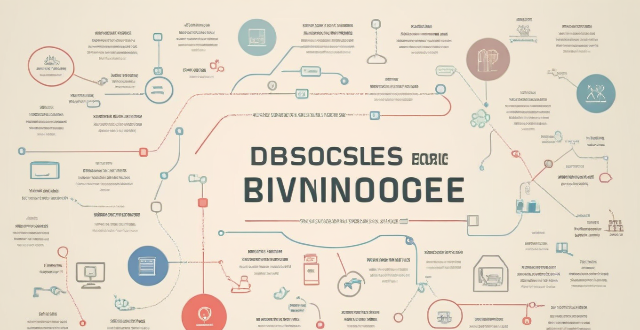
What is the difference between academic and non-academic writing ?
The article discusses the differences between academic and non-academic writing in terms of purpose, audience, style, structure, and language features. Academic writing aims to convey complex ideas and research findings to a specialized audience using formal, objective, and precise language, while non-academic writing focuses on informing, entertaining, or persuading a general audience using informal, subjective, and general language. The structure of academic writing is rigid and includes detailed analysis and extensive citations, whereas non-academic writing has a flexible structure, narrative style, and limited references. Language features also differ, with academic writing using complex sentences, passive voice, and abstract concepts, while non-academic writing prefers simple sentences, active voice, and concrete examples.

What are some common mistakes to avoid in academic writing ?
Avoid common mistakes in academic writing, such asAvoid common mistakes in academic writing, such as, lack of clarity and precision overuse of passive voice, inappropriate word choice, failure to proofread, and ignoring feedback. These pitfalls can make your writing less effective and professional. By avoiding them, you can improve the quality of your academic writing and better convey your research and ideas to your audience.

What are the key elements of academic writing ?
Academic writing is a form of writing that follows specific guidelines and conventions to ensure clarity, precision, and objectivity. Key elements of academic writing include a clear and concise title, an abstract summarizing the paper, an introduction setting the stage for the research, a literature review evaluating existing research, a methodology section describing the research design and procedures, a results section presenting the findings, a discussion interpreting the results, a conclusion summarizing the main points, and references listing sources. Appendices may also be included for supplementary materials.
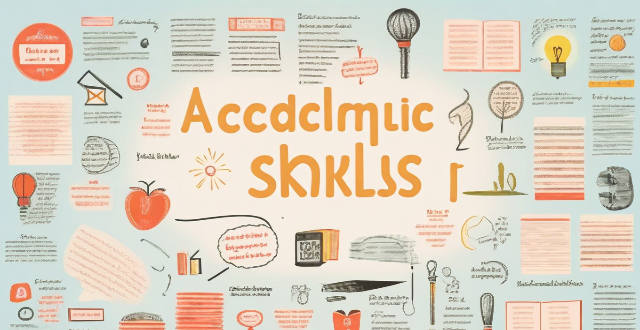
How do I improve my academic writing skills ?
Improving your academic writing skills is crucial for success in higher education. Tips include reading extensively, practicing regularly, seeking feedback, planning and organizing ideas, using appropriate language and tone, following proper formatting guidelines, and editing and proofreading carefully. By following these tips, you can enhance your writing abilities over time.
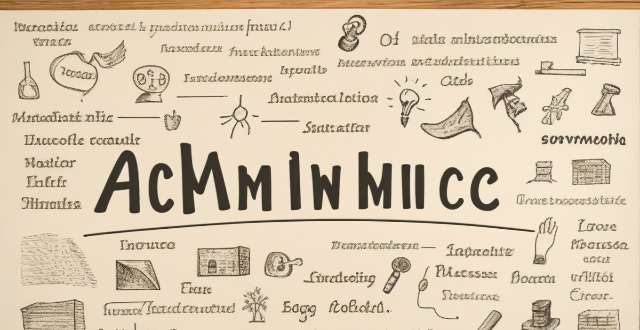
What are some tips for effective academic writing ?
Effective academic writing is essential for success in higher education. To improve your skills, understand the assignment, plan your work, conduct research, write clearly and concisely, use evidence to support arguments, edit and revise your work, follow academic integrity guidelines, use visual aids when applicable, stay focused on the main point, and seek feedback from others.

How do I cite sources in academic writing ?
The text discusses the importance of citing sources in academic writing and provides guidelines on how to do so. It emphasizes the need to choose a citation style that aligns with the requirements of the discipline or institution, use in-text citations appropriately, create a reference list or bibliography, potentially use footnotes or endnotes, and maintain consistency throughout the paper. The text also includes an example of citing sources in APA style.

What are some effective techniques for improving my writing ?
Improving your writing skills involves a combination of reading, practicing, and receiving feedback. Regular reading helps in understanding different styles and techniques, while daily writing exercises such as journaling or crafting short stories enhance clarity and coherence. Grammar and vocabulary practice through exercises and learning new words are crucial. Seeking peer and professional feedback allows for constructive criticism. Revision is key, with multiple drafts and editing tools aiding in refining work. Studying writing techniques through courses and books deepens understanding. Setting writing goals, experimenting with different styles, and using writing prompts foster creativity and structured practice. Lastly, maintaining a healthy lifestyle supports mental clarity and creativity. Consistent effort and patience lead to significant improvements in writing skills over time.

How do home teaching strategies impact a child's academic performance ?
Home teaching strategies refer to the methods and techniques parents use to support their children's learning outside of school. These strategies can have a significant impact on a child's academic performance, as they provide additional opportunities for learning and help reinforce concepts taught in the classroom. In this response, we will explore the various home teaching strategies and how they influence a child's academic success. Parents play a crucial role in encouraging and motivating their children to learn. By showing interest in their child's education and expressing positive expectations, parents can help build their child's confidence and self-esteem. This, in turn, can lead to increased engagement in learning activities and better academic performance. Parents should set clear goals and expectations for their children's academic achievement. This helps children understand the importance of education and provides them with a sense of direction. When parents establish high but realistic expectations, children are more likely to strive for excellence and achieve better results. Creating a supportive learning environment at home is essential for fostering academic success. Parents should ensure that their children have a quiet, well-lit space for studying, as well as access to necessary resources such as books, computers, and educational software. Additionally, parents should establish regular study routines and minimize distractions during designated study times. Reading aloud to children is an effective way to improve their vocabulary, comprehension skills, and overall literacy development. Parents should make reading a daily habit, selecting age-appropriate books that align with their child's interests and reading level. Writing is an essential skill that requires consistent practice to develop. Parents can encourage their children to write by providing them with opportunities to express themselves through journaling, storytelling, or letter writing. Providing feedback on their writing efforts can also help children improve their writing skills over time. Mathematics is a subject that benefits from regular practice and exposure to new concepts. Parents can support their child's mathematical development by providing them with challenging problems and puzzles to solve. This not only helps reinforce math skills learned in school but also promotes critical thinking and problem-solving abilities. Inquiry-based learning involves allowing children to explore topics of interest through hands-on experiences and investigation. Parents can support this type of learning by providing resources such as science kits, nature exploration guides, or access to online resources that allow children to engage in inquiry-based activities. Home teaching strategies have a significant impact on a child's academic performance. By involving themselves in their child's education, setting goals and expectations, and providing a supportive learning environment, parents can help their children achieve academic success. Additionally, employing effective home teaching strategies such as reading aloud, encouraging writing practice, providing mathematical challenges, and promoting inquiry-based learning can further enhance a child's academic development.

What is academic integrity ?
Academic integrity is a fundamental principle governing the conduct of research, teaching, and learning in academic institutions. It encompasses values and ethical standards promoting honesty, fairness, respect, and responsibility among students, educators, and researchers. The goal is to maintain trustworthiness and credibility by adhering to high ethical standards. Core values include honesty, fairness, respect, and responsibility. Key aspects are avoiding plagiarism, fabrication, cheating, multiple submissions, and collusion. Violating academic integrity can lead to loss of reputation, disciplinary action, legal consequences, diminished career prospects, and ethical implications. Adhering to academic integrity promotes a fair and just academic environment.

How do I develop a unique writing style ?
The text provides a detailed guide on "How to Develop a Unique Writing Style." It outlines five key steps: reading widely, practicing writing regularly, experimenting with different techniques, finding your unique voice, and seeking feedback from others. The author emphasizes that developing a distinctive style takes time and effort but can significantly enhance one's writing impact.

How can I improve my writing skills ?
The text provides a comprehensive guide on how to improve writing skills. It outlines strategies such as reading regularly, practicing writing daily, learning grammar and style guides, getting feedback, revising and editing, studying writing techniques, setting realistic goals, finding one's voice, staying motivated, and keeping the learning process continuous. Each strategy is further elaborated with specific actions or methods that can be adopted. The emphasis is on consistency and openness to learning from both successes and failures in the writing journey.
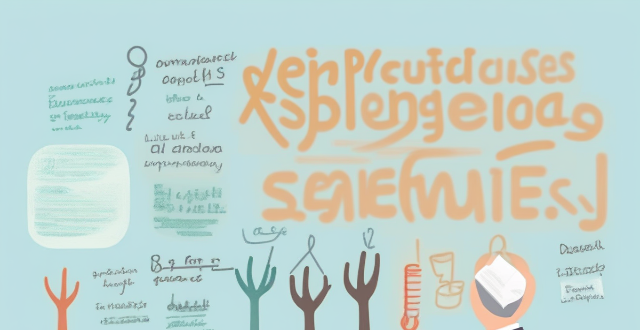
How can students with English as a second language be supported in understanding and applying academic integrity standards ?
The text discusses the importance of supporting students with English as a second language (ESL) in understanding and applying academic integrity standards. It outlines four key strategies for doing so: providing clear explanations, accessible resources, open communication, and extra support. Clear explanations should cover what constitutes academic dishonesty, the consequences of violations, and how to avoid dishonesty. Accessible resources such as glossaries, guides, and videos can help ESL students understand these concepts better. Encouraging open communication between students and instructors can address concerns and questions about academic integrity. Providing extra support through tutoring services, workshops, and peer mentoring programs can further assist ESL students in adhering to academic integrity standards.

How do I make my writing more engaging and interesting to read ?
Writing is an art form that requires practice, patience, and a willingness to experiment with different techniques. To make your writing more engaging and interesting to read, consider using vivid language, telling stories, using active voice, varying sentence structure, incorporating humor, and showing rather than telling. These strategies can help bring your writing to life and keep readers interested.

Can playing sports improve one's writing skills ?
Playing sports can indirectly improve writing skills by enhancing focus, creativity, and reducing stress. It also promotes discipline, teamwork, and resilience, qualities beneficial for writing. Incorporating sports into a routine can inspire more engaged and authentic writing.

How do I structure my writing effectively ?
Effective writing structure is crucial for conveying your message clearly and engagingly. Here are some tips on how to structure your writing effectively: 1. Understand the purpose of your writing and tailor your structure accordingly. 2. Create a basic outline before you start writing, organizing your thoughts into sections such as introduction, body, and conclusion. 3. Start with an attention-grabbing opening that sets the tone for your piece and state the main idea or thesis statement clearly in the introduction. 4. Divide the body into paragraphs, each presenting a single main point, and use topic sentences to introduce each paragraph's main idea. Provide evidence or examples to support your points and maintain a logical flow between paragraphs. 5. Summarize the main points without repeating them verbatim in the conclusion, draw a conclusion based on the evidence provided, and end with a memorable closing statement or call to action. 6. Break up long sections with headings and subheadings to help readers navigate through your text easily. 7. Maintain consistency in tense, voice, and perspective, and stick to one style guide for formatting and references. 8. Review your work for clarity, coherence, and correctness, making sure each sentence contributes to the overall structure and purpose.

What are some tips for editing and revising my writing ?
Editing and revising are crucial steps in the writing process that can significantly improve the quality of your work. Here are some tips to help you edit and revise your writing effectively: 1. Take a break from your writing to get a fresh perspective. 2. Read your writing out loud to catch awkward phrasing, grammatical mistakes, and typos. 3. Check for clarity and coherence within and between paragraphs. 4. Pay attention to sentence structure and vary sentence length to create rhythm and interest. 5. Use active voice instead of passive voice whenever possible. 6. Eliminate redundant words or phrases and be concise without sacrificing clarity or meaning. 7. Vary vocabulary by using synonyms to avoid repeating the same words. 8. Use spell-check and grammar-check tools, but also read through your work carefully to catch any errors they might miss. 9. Get feedback from someone else to spot issues you haven't noticed and offer valuable suggestions for improvement. 10. Revise your work multiple times to refine it further and make it stronger overall.

How can I improve my grammar and punctuation in writing ?
Improving grammar and punctuation skills is essential for becoming a proficient writer. Here are some tips: 1. Read widely to expose yourself to different styles of writing, grammar rules, and punctuation usage. 2. Practice active reading by analyzing sentence structure, vocabulary, grammar rules, and punctuation. 3. Write regularly to become better at using proper grammar and punctuation. 4. Get feedback from others to receive constructive criticism on your grammar and punctuation. 5. Use online tools and resources like grammar checkers, online courses, and grammar books to improve your skills. 6. Study grammar rules and punctuation guidelines focusing on parts of speech, sentence structure, and correct uses of punctuation marks. 7. Edit and revise your work thoroughly to ensure clarity, consistency, correctness, and completeness. Remember that mastering these aspects of writing takes practice and patience, so keep improving!

How do athletes use their experiences in sports to inspire their writing ?
Athletes often draw from their experiences in sports to inspire their writing. Here are some ways in which they do so: 1. Overcoming Adversity: Athletes face numerous challenges and setbacks throughout their careers, such as injuries, losses, and pressure to perform. These experiences can serve as powerful sources of inspiration for their writing. They can share stories of how they overcame these obstacles and the lessons they learned along the way. 2. Teamwork and Collaboration: Sports often require teamwork and collaboration, which can translate into valuable insights for writing about relationships, communication, and leadership. Athletes can write about the importance of working together towards a common goal, trusting one another, and supporting each other through difficult times. 3. Discipline and Perseverance: The discipline required to excel in sports can be applied to other areas of life, including writing. Athletes can write about the value of perseverance, dedication, and hard work, and how these qualities have helped them achieve success both on and off the field. 4. Mental Toughness: Sports often test an athlete's mental toughness, requiring them to stay focused, motivated, and resilient in the face of adversity. These experiences can provide valuable insights for writing about resilience, determination, and overcoming self-doubt. 5. The Pursuit of Excellence: Athletes strive for excellence in their chosen sport, constantly pushing themselves to improve and reach new heights. This pursuit of excellence can inspire writers to strive for greatness in their craft, always seeking to refine their skills and create something truly exceptional. 6. Embracing Failure: In sports, failure is inevitable. Athletes learn to embrace failure as an opportunity to learn and grow, rather than a reason to give up. This mindset can be incredibly valuable for writers who may face rejection, criticism, or creative blocks. By embracing failure as a necessary part of the process, athletes can inspire writers to keep pushing forward despite setbacks. 7. Finding Inspiration in Routine: Athletes often have rigorous training routines that require them to push themselves physically and mentally every day. This disciplined approach to daily practice can inspire writers to establish their own routines and rituals that help them stay focused, productive, and creative. 8. The Power of Mindset: The mindset required to succeed in sports can also be applied to writing. Athletes must believe in their ability to achieve their goals, even when faced with seemingly insurmountable challenges. This positive mindset can inspire writers to believe in their own abilities and persevere through difficult times. 9. Celebrating Triumphs: Finally, athletes often celebrate their triumphs and accomplishments, no matter how small they may seem at the time. These moments of joy and pride can serve as powerful reminders for writers that every step forward is worth celebrating, and that progress comes from consistent effort and dedication over time.

How does technology impact academic integrity, particularly regarding plagiarism ?
Technology has significantly impacted academic integrity and plagiarism in the educational world. The rise of plagiarism detection software has increased awareness and improved the quality of student work but may also lead to false positives and overreliance on technology. Evolution of writing and research tools makes information more accessible yet poses risks like plagiarism opportunities and lack of critical thinking. Social media and collaborative platforms facilitate collaboration and networking but can also contribute to plagiarism risks and distractions. It is crucial for educators to promote ethical practices while leveraging technology's benefits for learning and collaboration.

How might AI influence creative industries like music, art, and writing ?
AI is transforming creative industries, enhancing and augmenting the creative process. It influences music production, art generation, and writing by offering tools for composition, sound design, mixing, generative art, content generation, and real-time translation. AI also assists in music recommendation, art analysis, and proofreading. Despite its potential, AI should complement human creativity, as art's essence lies in unique perspectives and emotions that only humans can provide.

What are the consequences of violating academic integrity principles ?
Violating academic integrity principles can lead to serious consequences on both individual and institutional levels, including academic penalties, damage to reputation, difficulty gaining acceptance into programs or securing employment, emotional distress, and potential loss of accreditation for institutions. It is essential for students to understand the importance of maintaining academic integrity to protect their personal and professional futures, as well as the reputation of their educational institutions.

What are the long-term effects of breaches in academic integrity on one's career ?
The long-term effects of breaches in academic integrity can be severe and far-reaching, including damaged reputation, limited career opportunities, and potential legal consequences. It is essential for students, researchers, and educators to uphold the principles of academic integrity to ensure the success of their careers and the integrity of their respective fields.

Can you give examples of academic dishonesty ?
Academic dishonesty refers to any behavior that compromises the integrity of academic work. It can take many forms, including cheating, plagiarism, falsification of data, and improper collaboration on assignments. Such actions not only undermine the trustworthiness of academic institutions but also hinder students' learning and development. Some examples of academic dishonesty include using cheat sheets or notes during exams, copying from others, using unauthorized devices, impersonation, submitting another's work as your own, unauthorized collaboration, direct plagiarism, mosaic plagiarism, fabrication, manipulation, selective reporting, group assignments as individual work, and unequal contribution. Engaging in academic dishonesty can lead to serious consequences, such as failure of the assignment or course, suspension or expulsion from school, and damage to reputation and future opportunities. It is essential for students to understand the importance of academic integrity and the long-term impact of their actions. By maintaining honesty in their academic pursuits, they ensure a fair and trustworthy educational environment for all.

Can sports improve academic performance in adolescents ?
Sports can positively impact academic performance in adolescents by improving physical health, mental well-being, and social skills. Studies show a positive correlation between sports participation and academic achievement, with athletes often achieving higher grades and increased college admission rates. However, individual differences and external factors must also be considered when evaluating this relationship.

How can students maintain academic integrity in their studies ?
The text discusses the importance of maintaining academic integrity in education and outlines several ways for students to do so. It emphasizes understanding the concept of academic integrity, adhering to school policies, citing sources properly, avoiding plagiarism, being honest in assessments, respecting intellectual property rights, maintaining confidentiality, reporting incidents of misconduct, and seeking help when needed. The text concludes that maintaining academic integrity is crucial for students to achieve success in their academic pursuits and beyond.
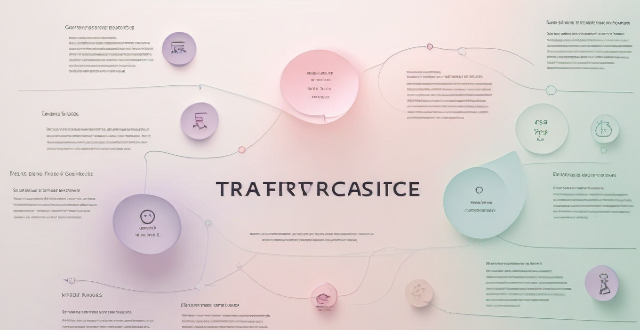
How do I structure an academic paper ?
This guide provides a step-by-step approach to structuring an academic paper, including key components such as the title page, abstract, introduction, literature review, methodology, results, discussion, conclusion, references, and appendices (if necessary). The goal is to make the writing process manageable and enjoyable by organizing research and ideas into a cohesive and well-structured document.

What are the benefits of participating in academic competitions ?
Academic competitions offer numerous benefits, including improved academic performance through increased knowledge and developed study habits, personal growth and development through confidence building and public speaking skills, and opportunities for recognition and rewards such as scholarships and job opportunities. Participation in these competitions can also lead to networking opportunities and recognition from schools and universities. Overall, participating in academic competitions is a great way to challenge oneself and open doors to future opportunities.

In what ways does academic integrity relate to professional ethics ?
**Academic Integrity and Professional Ethics: An Interconnected Relationship** The concepts of academic integrity and professional ethics are fundamentally interconnected, sharing principles like honesty, fairness, responsibility, respect, and courage. Academic integrity lays the groundwork for professional ethics by instilling foundational skills such as critical thinking, research integrity, and ethical decision-making. These skills transition from academia to profession, building reputations for reliability and trustworthiness. Therefore, promoting academic integrity is crucial not only for the academic community but also for the broader professional world.

Are there any cultural differences in perceptions of academic integrity ?
The perception of academic integrity can vary across cultures due to differences in values, beliefs, and practices. In individualistic cultures, academic integrity is often viewed as an individual responsibility, while collectivist cultures place more emphasis on group harmony and cooperation. Power distance can also influence perceptions of academic integrity, with high power distance cultures being more reluctant to report instances of academic dishonesty. The concept of time can also play a role, with monochronic cultures prioritizing efficiency over quality, while polychronic cultures focus on building relationships. Attitudes towards rules and regulations can also vary across cultures, with rule-based cultures viewing academic integrity as a set of strict rules, while relation-based cultures view it as something that depends on the relationship between individuals. Understanding these cultural differences can help educators design effective strategies to promote academic integrity among diverse student populations.

How do academic competitions contribute to a student's overall development ?
This article discusses the benefits of academic competitions in contributing to a student's overall development. It highlights how these competitions enhance academic achievement by boosting confidence, developing critical thinking skills, and encouraging independent learning. The article also emphasizes the role of academic competitions in promoting personal growth by building resilience, promoting teamwork, and developing time management skills. Furthermore, it points out how these competitions contribute to professional development by exploring potential career paths, gaining recognition and awards, and expanding networking opportunities. Overall, the article concludes that participating in academic competitions provides students with valuable experiences that can benefit them throughout their lives.